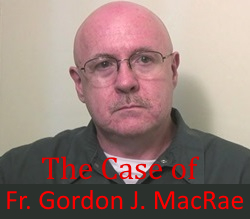The New York Times reports that the man behind the claim that crosses and crucifixes are made under "horrific sweatshop conditions" in China admits that his information is "sketchy" and "anecdotal." Charles Kernaghan is the head of the National Labor Committee (NLC), a well-known organization that has challenged the working conditions under which companies like GAP have manufactured their clothes. Kernaghan now claims that crosses and crucifixes being sold at St. Patrick's Cathedral in New York City and other outlets are made under similar unacceptable conditions.
It's one month before Christmas. Stories of "crosses and crucifixes made in sweatshops in China" are airing across America. Are Catholic and Christian retailers getting a bad rap? There's evidence that this might be the case.
1. A New York Times report stated, "Mr. Kernaghan acknowledged that information on the factories was sketchy … 'This stuff is all anecdotal,' he said. 'It comes to us from the workers.'"
"Sketchy"? "Anecdotal"? This is from the guy making the claim? Good grief. I guess the standard of proof is quite a bit lower if the Catholic Church is involved.
2. In a Wednesday (11/21/07) interview on the far-left radio/TV show Democracy Now, Kernaghan admitted he had never been to the alleged "sweatshop" factory before. Said Kernaghan, "No … it just does not work. You're always followed. Anyone seen in contact with us would have a fast ticket to prison. So we have to keep as far away as possible."
You mean as far away as New York City, sir? Sketchy, indeed.
3. In the same interview, Mr. Kernaghan appears on the verge of referring to Christian retailers as "these religious creatures" before catching himself in a slip-up. (Follow this link. Click the video. Watch around 3:52. It's not in the transcript.)
4. According to his web site, at a press conference outside St. Patrick's Cathedral on Tuesday (11/20/07), Kernaghan held up a crucifix and said, "This crucifix was made by young women—several just 15 and 16 years of age …" Yet his organization's own report states that the factory is employed by "mostly young women, several appearing to be just 15 or 16 years old." So are the women 15 and 16, or do they just appear that way? What evidence does Mr. Kernaghan have? The owner of the factory vehemently denies hiring anyone under 18. (Read The Singer Company's reply to all of this.)
5. Also in the same interview, Kernaghan was asked to respond to the statement from the Association for Christian Retail that Kernaghan's claims were "unfounded and irresponsible" and that the organization makes regular trips overseas to "ensure quality control as well as inspect working conditions." Kernaghan replied that "it's like asking Jack the Ripper if he respects young women." Meanwhile, Kernaghan expects the public to accept his word even though he himself has never been to the factory in question. What's going on?
6. When asked for a response on Democracy Now that St. Patrick's cathedral had pulled the crucifixes in question, Kernaghan only conceded that it was a "good first step." "St. Patrick's Cathedral and Trinity Church must make those workers whole again," Kernaghan stated. Really? What about the local Chinese government? The national Chinese government? The importers of the crucifixes? The suppliers? In Kerrigan's eyes, the responsibility of making the workers "whole again" rests with a retailer who was completely unaware of any alleged mistreatment.
7. Also on Democracy Now, when asked about The Singer Company, one of the companies that sells the crucifixes, Kernaghan stated, "Well its one of these Christian retail companies. It has $10 million in sales, it's not particularly small. When you go to the website, they display 66 different types of crosses, but they sound like Crazy Eddie or Wal-Mart saying: 'Go to our website. Look at our crucifixes and our wall crosses. You'll love our selection and you will love our prices. We will never be undersold.' It is like, crucifixes are being trafficked like low-cost things in Wal-Mart. It is like the bottom is falling out." Well, here is the web page that Kernaghan is talking about. You can decide for yourself if it resembles Crazy Eddie or Wal-Mart.
8. Kernaghan also claimed, "This particular company [the Singer Company] lied and said they [the crucifixes] were made in Italy." Well, for what it's worth, a Google search of the site 'singer-co.com' for "Italy" returns zero results.
Let's be very clear: Inhumane working conditions anywhere in the world are simply unacceptable. Companies should have no business with factories that treat workers savagely. Mr. Kernaghan's aim to have workers around the world treated properly is worthy and admirable (and quite in line with Christian beliefs, I might add). But before publicly excoriating companies and unwitting retailers, there should be an established level of proof that goes beyond "sketchy" and "anecdotal" evidence, and Kernaghan's claims about "sweatshop" working conditions have far too much of this.
In addition, there is a media in this country that's all too willing to air any ol' story that makes the Catholic Church look bad. (I first heard of this story on the awful CBS2 in Los Angeles.) For them, it's already "Mission Accomplished." The story is out, and another hit piece on the Catholic Church has succeeded.








